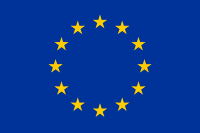#3 Policy Recommendation Area
Prioritise purposeful digitisation supporting reuse of cultural heritage collections
About this process
This process belongs to Policy Recommendations Toolkit
Prioritise purposeful digitisation supporting reuse of cultural heritage collections
#3 Policy Recommendation Area
Prioritise purposeful digitisation supporting reuse of cultural heritage collections

Quality focus
The heritage sector needs to introduce a clear shift towards a more purposeful, qualitative approach in digitisation, leading to the introduction of digitisation for reuse, based on FAIR principles*, prioritising collections open for reuse. The discussion on openness and reuse practices should also apply to born-digital heritage collections. Adequate regulations of intellectual property law, including copyright, should directly enable the institution to both digitise and reuse the accumulated cultural heritage.
Environmental awareness
The digitalisation process is relying upon extensive ICT infrastructure which entails a meaningful consumption of resources and energy and thus directly and indirectly contributes to environmental pressures and the intensification of climate change. The heritage sector must better understand and seek to mitigate the environmental impacts of digital activities.
Inclusivity
Digitisation must become an inclusive process, engaging communities and external partners from outside of the cultural heritage domain in digitisation policy making, introducing a bottom-up approach towards digitisation strategies based on the stakeholders’ needs, and making sure that access and reuse of digitised collections is relevant to a wider group of stakeholders (researchers, educators, creatives, local communities, etc.) at different levels.
Operationalisation of recommendation #3:
3.1 Prioritise digitisation funding programmes, legislation and policies facilitating reuse
Policy makers at the EU and national level
Policy makers at the EU and national level Heritage Networks
3.3 Ensure the participatory character of cultural heritage institutions’ digitisation strategies





Share: